UAE PPP activity rises
8 October 2024

All eyes are on Dubai in the final quarter of the year as it endeavours to bring to the market its largest infrastructure project to date.
The prequalification process is under way for potential investors for the planned $22bn Dubai Strategic Sewerage Tunnels (DSST) project, which will be procured on a public-private partnership (PPP) basis.
The project's ambitious scope includes converting Dubai’s existing sewerage system from a pumped system to a gravity system by decommissioning the existing pump stations and providing “a sustainable, innovative, reliable service for future generations”.
Dubai currently has two major sewerage catchments. The first, in Deira, is Warsan, where the Warsan sewage treatment plant (STP) treats the flow. The second catchment is in Bur Dubai, where the wastewater is treated at the Jebel Ali STP.
The DSST will replace 120 pump stations, saving approximately 100 gigawatt-hours of electricity annually, MEED has been told.
The 25-35-year design-build-finance procurement model is also ambitious, given that Dubai has a dismal PPP track record, with the exception of electricity and water generation projects.
The DSST project has met major interest from engineering, procurement and construction (EPC) contractors. A total of 21 individual companies and consortiums prequalified to bid for the project’s three tunnels and terminal pump station packages – J1, J2 and W. Nineteen have been prequalified to bid for package J3.
The client is expected to run a separate prequalification process for the packages to upgrade the two existing STPs.
At the time of writing, Dubai Municipality, the project client, has yet to receive the statements of qualifications from interested investors.
Industry sources have indicated, however, that those that have shown early interest include Japan's Marubeni Corporation and Itochu, Australia's Plenary Group, Belgium's Besix, China Railway Engineering Corporation and China Harbour Engineering Company, and potentially some Israeli investors.
The project is essential to support Dubai’s economic expansion and sustainability ambitions, notes a source close to the scheme, stopping short of saying that the lack of suitable infrastructure could limit the extent to which the emirate can grow.
So far, while everyone agrees that the project is imperative, some need further convincing of the likelihood of success for the project’s chosen PPP route.
“It is a civil construction project with limited operation and maintenance scope,” says a senior executive with an infrastructure investor, who adds that the government of Dubai can raise a bond much cheaper than equity.
A senior transaction adviser not linked to the project notes, however, that since PPPs are a combination of debt and equity, “overall, PPPs are cheaper for governments”.
The latter adds that the PPP route is doable if the project is tendered in phases or one at a time, as is currently planned.
Water desalination and treatment projects
In recent months, the UAE has also seen an uptick in water desalination plants utilising reverse osmosis technology.
Three independent water projects (IWPs) are under construction, including Abu Dhabi’s Mirfa 2 and Shuweihat 4, and Hassyan 1 in Dubai. The three seawater reverse osmosis (SWRO) plants have a total combined capacity of 370 million imperial gallons a day (MIGD).
Negotiations are under way for the contract to develop Abu Dhabi’s next IWP on Saadiyat Island, while the request for qualifications for another project, the 90MIGD Al-Nouf IWP, is expected to be issued in December this year or January 2025.
Sharjah Electricity & Water Authority (Sewa) also awarded the contract to develop its first IWP scheme this year to Saudi Arabia-headquartered Acwa Power, which was the tender’s sole bidder.
The $682m, 90MIGD project is expected to reach financial close soon.
"This is Sharjah’s first IWP and, unlike other jurisdictions such as Oman, Abu Dhabi and Saudi Arabia, the emirate has yet to establish a track record with PPPs, especially in power and water," says Robert Bryniak, CEO of Dubai-based Golden Sands Management (Marketing) Consulting.
He notes that once the Hamriyah IWP reaches financial close and commercial operations, Sewa should be able to attract more developers for future IWPs.
Sewa is not the only utility launching its maiden IWP. Etihad Water & Utility (Etihad WE) is understood to have conducted a market-sounding event earlier this year for a small SWRO plant to complement the capacity of an existing facility in Ghalilah in Ras Al-Khaimah, another of the UAE's northern emirates.
Ras Al-Khaimah's Public Services Department and Investment & Development Office have also started the tendering proceedings for the emirate's first independent sewage treatment plant project.
The proposed plant will be able to treat 60,000 cubic metres a day (cm/d) of sewage water, which could be expanded to 150,000 cm/d.
The project has garnered strong interest from the market, with the following companies and consortiums having been prequalified to bid for the contract:
- Acciona (Spain)
- Besix (Belgium)
- China Harbour Engineering Company (China) / BOWT
- Cobra (Tedagua, Spain)
- GS Inima (Spain/South Korea) / Alkhorayef Water & Power Technologies (Saudi Arabia)
- Etihad Water & Electricity (UAE) / Saur (France)
- FCC Aqualia (Spain)
- MA Kharafi (Kuwait) / Passavant Energy & Environment (UAE, Germany)
- Metito
- Miahona Company (Saudi Arabia)
- Orascom Construction (Egypt)
- Sustainable Water Solutions (UAE)
- Veolia Middle East (France / local)
MEED understands that the scope of the build, own, operate and transfer scheme will include extensive sewerage and distribution works, in addition to the STP.
Exclusive from Meed
-
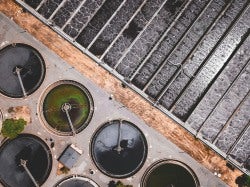 Dubai plans EPC tender for Warsan sewage treatment plant
Dubai plans EPC tender for Warsan sewage treatment plant25 February 2026
-
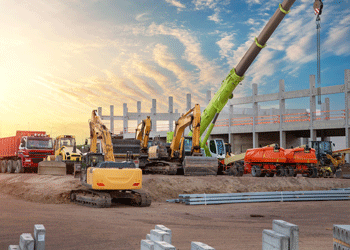 Aramco firm and Arcapita sign logistics facility deal
Aramco firm and Arcapita sign logistics facility deal25 February 2026
-
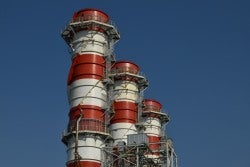 Algeria gives bidders more time for 1.2GW plant
Algeria gives bidders more time for 1.2GW plant25 February 2026
-
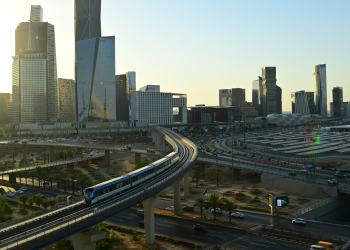 Riyadh tenders Line 7 metro project management deal
Riyadh tenders Line 7 metro project management deal25 February 2026
-
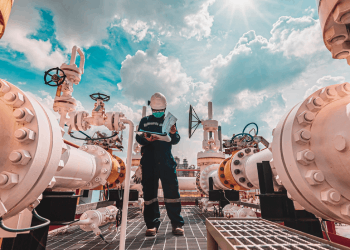 Six companies prequalify for Algeria gas contract
Six companies prequalify for Algeria gas contract25 February 2026
All of this is only 1% of what MEED.com has to offer
Subscribe now and unlock all the 153,671 articles on MEED.com
- All the latest news, data, and market intelligence across MENA at your fingerprints
- First-hand updates and inside information on projects, clients and competitors that matter to you
- 20 years' archive of information, data, and news for you to access at your convenience
- Strategize to succeed and minimise risks with timely analysis of current and future market trends

Related Articles
-
 Dubai plans EPC tender for Warsan sewage treatment plant
Dubai plans EPC tender for Warsan sewage treatment plant25 February 2026

Register for MEED’s 14-day trial access
Dubai Municipality is preparing to tender the main construction package for the Warsan sewage treatment plant (STP) by the end of the year, according to sources close to the project.
The scheme is linked to the deep sewerage tunnels infrastructure programme being implemented by the municipality’s sewerage and recycled water projects department.
As MEED understands, the Warsan STP had previously been expected to be procured as a public-private partnership (PPP) scheme.
However, sources confirmed that the main construction package will now be procured as an engineering, procurement and construction (EPC) contract.
The project involves the construction of a sewage treatment plant with a capacity of about 175,000 cubic metres a day (cm/d), including treatment units, sludge handling systems and associated infrastructure.
The plant, estimated to cost about $326m, will be developed at the existing Warsan complex, where the municipality is also progressing separate expansion and rehabilitation packages.
These include Warsan STP Phase 1 (DS-355/1), which involves sewerage and stormwater network upgrades, and Stage 2 of the Al-Warsan sewage treatment plant (DS-203/2), comprising new treatment units
Kuwait-headquartered Mohammed Abdulmohsin Al-Kharafi & Sons is the main EPC contractor for both projects.
Separately, the municipality is also progressing the expansion and upgrade of the first and second phases of the Jebel Ali STP.
The upgraded facility will be capable of treating an additional sewage flow of 100,000 cm/d.
Earlier this month, contractors were invited to prequalify for the contract.
The bid submission deadline is 2 April.
https://image.digitalinsightresearch.in/uploads/NewsArticle/15765751/main.jpg -
 Aramco firm and Arcapita sign logistics facility deal
Aramco firm and Arcapita sign logistics facility deal25 February 2026
Asmo, the logistics joint venture of Saudi Aramco and DHL Supply Chain, has signed an agreement with Bahrain‑headquartered Arcapita Group Holdings to deliver a 1.4-million-square-metre (sq m) built-to-suit logistics complex at King Salman Energy Park (Spark).
The project will feature a 43,000 sq m temperature-controlled, Grade A warehouse, more than 3,000 sq m of office and staff amenities, 5,300 sq m dedicated to chemical storage, and an open yard spanning about 1.2 million sq m.
Planned for large-scale industrial use, the site is expected to incorporate advanced warehouse and building management systems, end-to-end digital connectivity, automation and robotics.
It will also be developed in line with internationally recognised sustainability standards, featuring solar (photovoltaic) readiness, EV charging infrastructure and a target of LEED Gold certification.
The development is aimed at supporting the next stage of Saudi Arabia’s logistics and supply chain expansion.
Under the deal structure, Arcapita will provide funding and retain ownership of the asset, while Asmo will develop the facility and then lease and operate it under a 22-year occupational lease.
According to a statement, “the scheme will be executed via a forward-funding model, underscoring a long-term commitment to national infrastructure”.
Asmo added that this will be its first purpose-built logistics centre and one of four strategic locations planned to anchor its nationwide logistics network, aligned with the National Transport and Logistics Strategy (NTLS) under Saudi Vision 2030.
https://image.digitalinsightresearch.in/uploads/NewsArticle/15765085/main.gif -
 Algeria gives bidders more time for 1.2GW plant
Algeria gives bidders more time for 1.2GW plant25 February 2026
Algeria’s state-owned electricity and gas utility Sonelgaz has extended the bid submission deadline for a contract to build a 1,200MW combined-cycle gas-fired power plant in Adrar.
The project is being procured through Sonelgaz’s power generation subsidiary, Societe Algerienne de l’Electricite et du Gaz – Production de l’Electricite (SPE).
The new bid submission deadline is 29 April. The main contract was first tendered in April last year, and the deadline has been extended several times since.
The latest deadline was 26 February.
The tender is open to local and international companies with experience in delivering large-scale power generation projects and with sufficient technical and financial capacity.
Algeria’s wider power sector has experienced periods of limited contract activity in recent years. Between 2018 and 2022, virtually no new solar or wind farm contracts were awarded, according to available data from the regional projects tracker MEED Projects.
In 2023, Sonelgaz Energie Renouvelables, a subsidiary of Algeria’s state-owned utility, awarded 14 of the 15 solar photovoltaic (PV) packages it tendered that year.
At the time, MEED reported that the 15 packages had a total combined capacity of 2,000MW, requiring at least AD172bn ($1.2bn) of investment.
However, publicly available data suggests that progress has been slow with several schemes yet to reach full construction or commercial stages.
Gas-fired combined-cycle plants continue to account for the majority of Algeria’s electricity generation capacity. Data from MEED Projects indicates that more than 5,000MW of oil- and gas-fired power capacity is currently under construction.
Despite this, new contract awards in 2025 came from three solar schemes.
This included the construction of a 154MW solar PV plant in Bechar, for which China Power was appointed main contractor in August.
https://image.digitalinsightresearch.in/uploads/NewsArticle/15765079/main.jpg -
 Riyadh tenders Line 7 metro project management deal
Riyadh tenders Line 7 metro project management deal25 February 2026

Register for MEED’s 14-day trial access
The Royal Commission for Riyadh City (RCRC) has issued a tender inviting firms to bid for a contract for project management consultancy services for the construction of Riyadh Metro Line 7.
MEED understands that RCRC has allowed firms until March to submit their proposals.
The latest development follows contractors submitting bids on 31 January for a contract to design and build the project.
The project involves constructing a metro line linking the Qiddiya entertainment city development, King Abdullah International Gardens, King Salman Park, Misk City and Diriyah Gate. The total length of the line will be about 65 kilometres (km), of which 47km will be underground and 19km will be elevated.
The line will have 19 stations, 14 of which will be built underground and five above ground.
Riyadh Metro’s first phase features six lines with 84 stations. The RCRC completed the phased roll-out of the Riyadh Metro network when it started operating the Orange Line in January this year.
Construction has also begun on the next phase of Riyadh Metro, the extension of Line 2.
In July last year, MEED exclusively reported that RCRC had awarded an estimated $800m-$900m contract for the project.
The contract was awarded to the Arriyadh New Mobility Consortium, led by Italy’s Webuild.
The group also includes India’s Larsen & Toubro, Saudi Arabia’s Nesma & Partners and France’s Alstom.
Line 3, also known as the Orange Line, stretches from east to west, from Jeddah Road to the Second Eastern Ring Road, covering a total distance of 41km.
The line spans 8.4km, of which 1.3km is elevated and 7.1km is underground. It includes five stations – two elevated and three underground.
It will run from the current terminus of Line 2 at King Saud University (KSU) and continue to new stations at KSU Medical City, KSU West, Diriyah East and Diriyah Central – where it will interchange with the planned Line 7 – before terminating at Diriyah South.
https://image.digitalinsightresearch.in/uploads/NewsArticle/15764750/main.png -
 Six companies prequalify for Algeria gas contract
Six companies prequalify for Algeria gas contract25 February 2026
Register for MEED’s 14-day trial access
Six companies have prequalified for a contract that is part of a project to connect the liquefied natural gas (LNG) storage and loading lines of the gas complexes known as GL1Z and GL2Z, according to a statement issued by Algeria’s state-owned oil and gas company Sonatrach.
The two complexes are part of Sonatrach’s Arzew LNG hub.
The scope of work for the contract is focused on the execution of the basic engineering study for the project.
The six companies that have prequalified for the project are:
- JGC (Japan)
- McDermott (US)
- Synergy Engineering (Indonesia)
- ExidaSP (UAE)
- EPPM (Tunisia)
- Enreco (Italy)
In its statement, Sonatrach said: “Following the review of applications, the companies … have been prequalified and will be invited to participate and submit bids in the selective consultation.”
The Arzew LNG hub is Algeria’s main LNG export centre, located near the port town of Arzew, about 40 kilometres east of Oran on the Mediterranean coast.
Sonatrach is currently implementing several projects to upgrade facilities within the hub.
In October last year, MEED revealed that the gas train known as T-300 had been brought back online at the site.
The train was brought back online after a new main cryogenic heat exchanger (MCHE) was commissioned.
The upgrade was part of a broader contract with US-based Honeywell to replace four MCHEs at GL1Z.
The contract was originally signed with Air Products, and Honeywell acquired the contract when it bought Air Products’ LNG process technology and equipment business in September 2024.
https://image.digitalinsightresearch.in/uploads/NewsArticle/15762638/main.png


